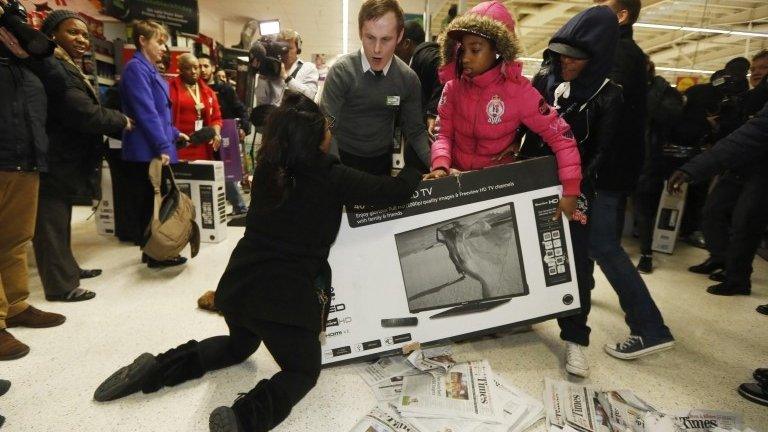Black Friday: Responding to last year's mayhem
- Published
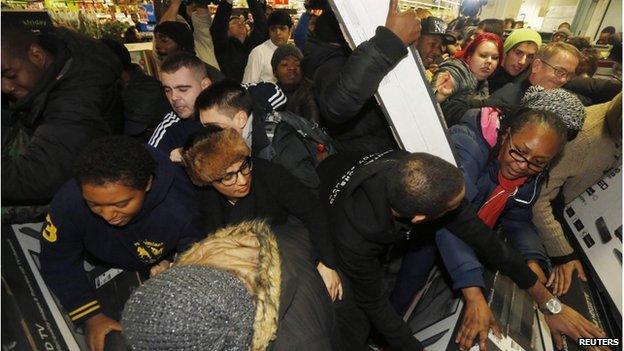
Asda in Wembley witnessed chaotic scenes on Black Friday last year
Black Friday last year saw scenes of mayhem erupting across England as shoppers scrambled to get their hands on cut-price goods.
As the American institution becomes firmly established as a feature of the shopping scene on the other side of the Atlantic, we ask how UK retailers plan to fend off scenes of violence - and why businesses even bother getting involved in a shopping event that most people outside of the US had never even heard of until recent years.
What are retailers doing this year?
Tesco saw some of the worst violence in its stores on Black Friday in 2014, so what is the supermarket doing this year to stave off similar scenes of mayhem?
A spokesperson for the supermarket said that to "ensure colleagues have enough time to set up for the event" its stores - some of which are open 24 hours - will close at midnight and not reopen until 05:00 GMT.
Every store has been individually assessed to provide them with the level of support they need, the spokesperson added, including employing extra security guards and providing additional barriers and queuing systems.
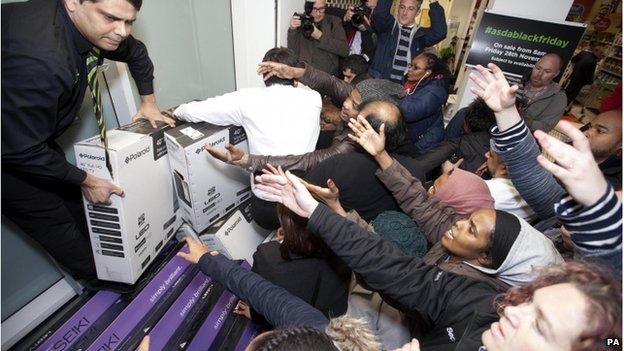
Asda has decided not to stage Black Friday sales this year
Another supermarket that saw violence was Asda, whose store in Wembley witnessed scenes of mayhem.
The retailer helped bring Black Friday to the UK in 2013, but has decided to opt out of the event this year. Instead, Asda says it will spread out its sales across the season, rather than offering a one-off bonanza.
In an interview earlier this month on BBC 5 live, Asda executive Russell Craig said he found footage of people fighting over television sets "uncomfortable", but insisted that customer feedback was behind the decision to spread sales out across the festive period.
The plans of the police
In Greater Manchester alone last year, police were called out to seven different Tesco stores. Amid the chaos, one woman was injured by a falling television and three men were charged - two with assault and one with a public order offence.
Officers were also called out to Tesco stores in London, including Edmonton, Willesden and Surrey Quays.
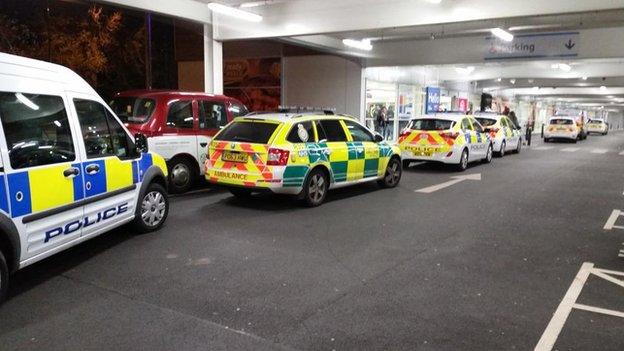
Last year police were called to Tesco in Stretford, where a woman was injured by a falling television
Greater Manchester Police said there would not be any specific measures in place for Black Friday this year.
Sue Fish, from the National Police Chiefs' Council Business and Retail Crime Unit, said it was not the role of the police to act as supermarket security.
"The police will intervene if necessary to protect public order and safety, but we should be the service of last resort, not a substitute for carefully-considered in-store security plans," she said.

Black Friday in the UK
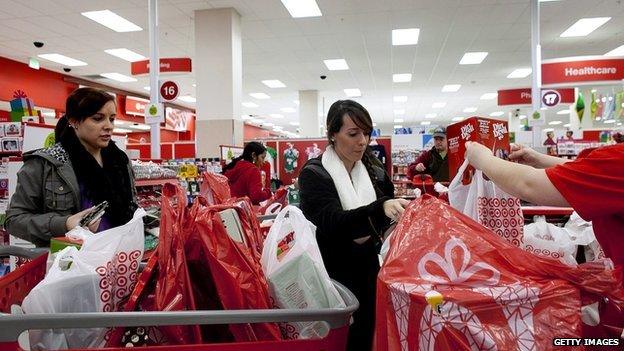
Black Friday was first introduced to the UK five years ago by online retailer Amazon
In 2013, Asda - owned by US retail giant Walmart - brought Black Friday sales into its stores
Black Friday falls this year on 27 November, and marks the beginning of the US Christmas shopping season
According to Visa, last year £1.75bn was spent on Black Friday by UK shoppers
Visa predicts that £721m will be spent online this year and £1.19bn in store, a rise of 17% and 4% respectively

What shoppers and retail experts say
For 26-year-old Will Fealey, who runs a Facebook page offering money-saving tips, external, the scenes of chaos from 2014 mean he will be steering clear of the stores.
"After looking at videos and photos of last year and seeing other people caught up in fights, I won't be travelling out. I know I can get the same deals or better deals online," he said.
But while the chaotic scenes of last year might be enough to deter some shoppers, Visa predicts that £1.19bn will be spent in store this year - a 4% rise on last year.
Yet as promising as that figure sounds, retail expert Clare Rayner suggests that Black Friday proposes a potential risk to retailers.
"Black Friday deals encourage retailers to sell at discounted prices," she said.
"At this time of year, retailers are usually able to sell products at a good price in anticipation for Christmas, and this money is needed come January as retailers need to have banked enough profit from Christmas sales to pave the way for quieter periods."
Shoppers scrambled over each other last year in the hope of bagging an apparent bargain
She added: "Because there's been so much hype, retailer participators have made customers expect it. This might not be great for profit, as people hold back on their spending waiting for Black Friday deals."
Yet according to David McCorquodale, head of UK retail at KPMG, getting involved in Black Friday is something that cannot be missed.
"It is clear from 2014 figures that Black Friday took a lot of the Christmas sales away from mid-December and from the Christmas week itself, so there is a bit of an argument that if you don't participate you may not recover the 'lost sales' over the next few weeks.
"Whatever, the discounting frenzy has created the day and created the consumer demand - telling consumers now that they won't be getting a bargain is not as easy as it might appear."
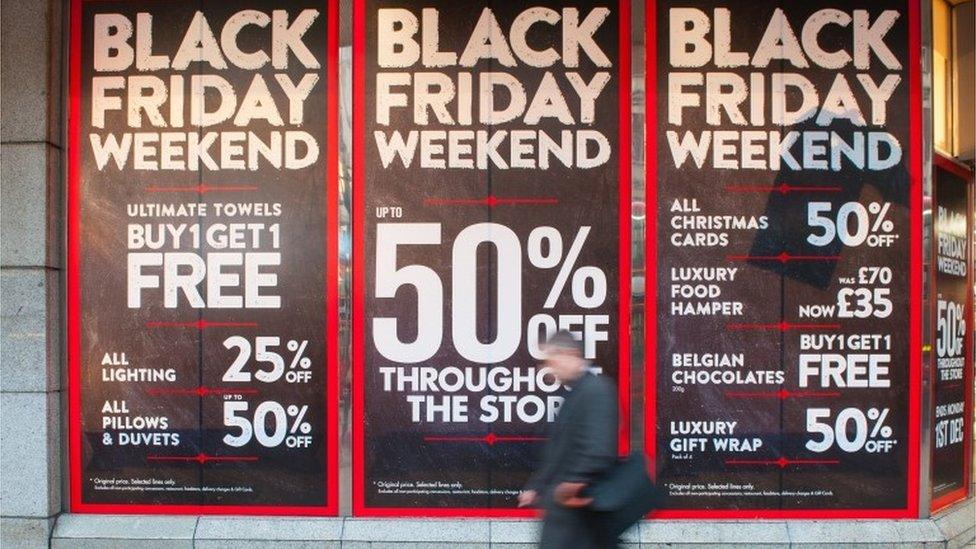
- Published26 November 2015
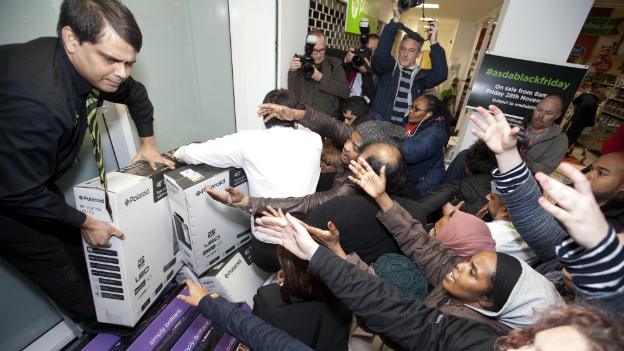
- Published10 November 2015
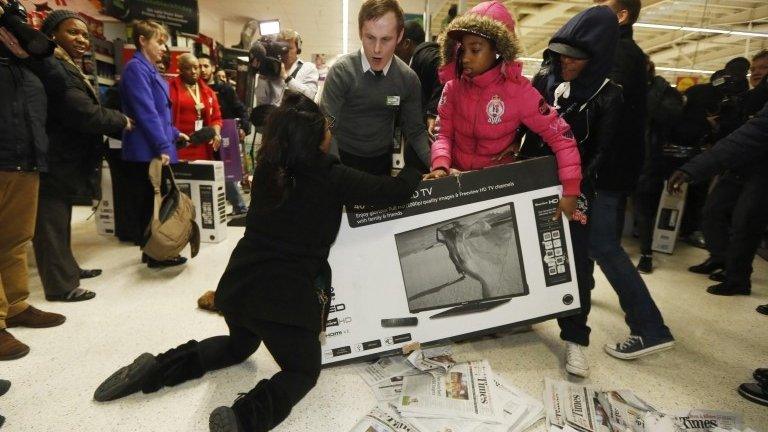
- Published10 November 2015
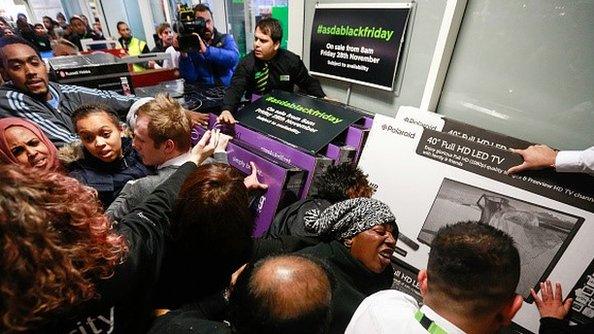
- Published28 November 2014
